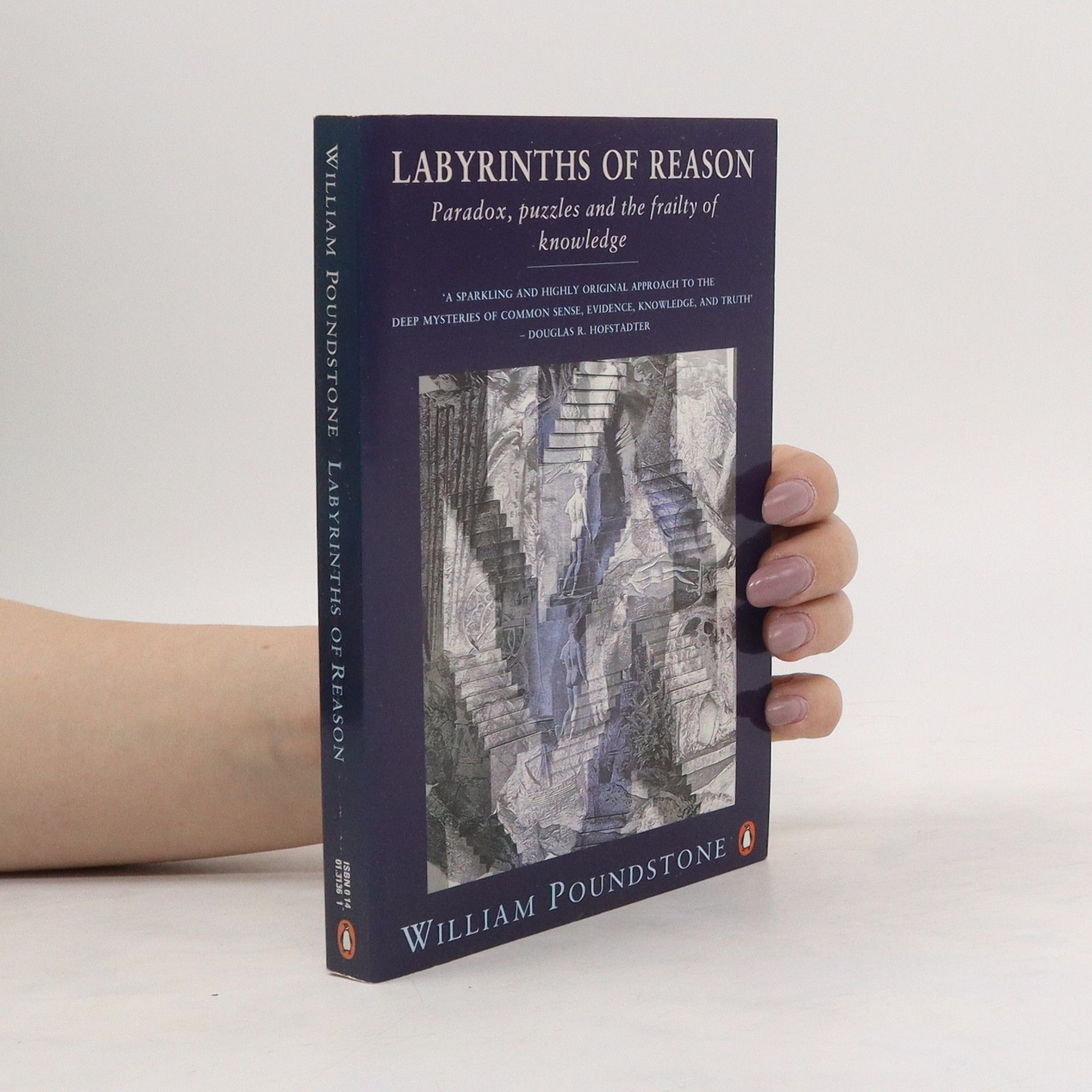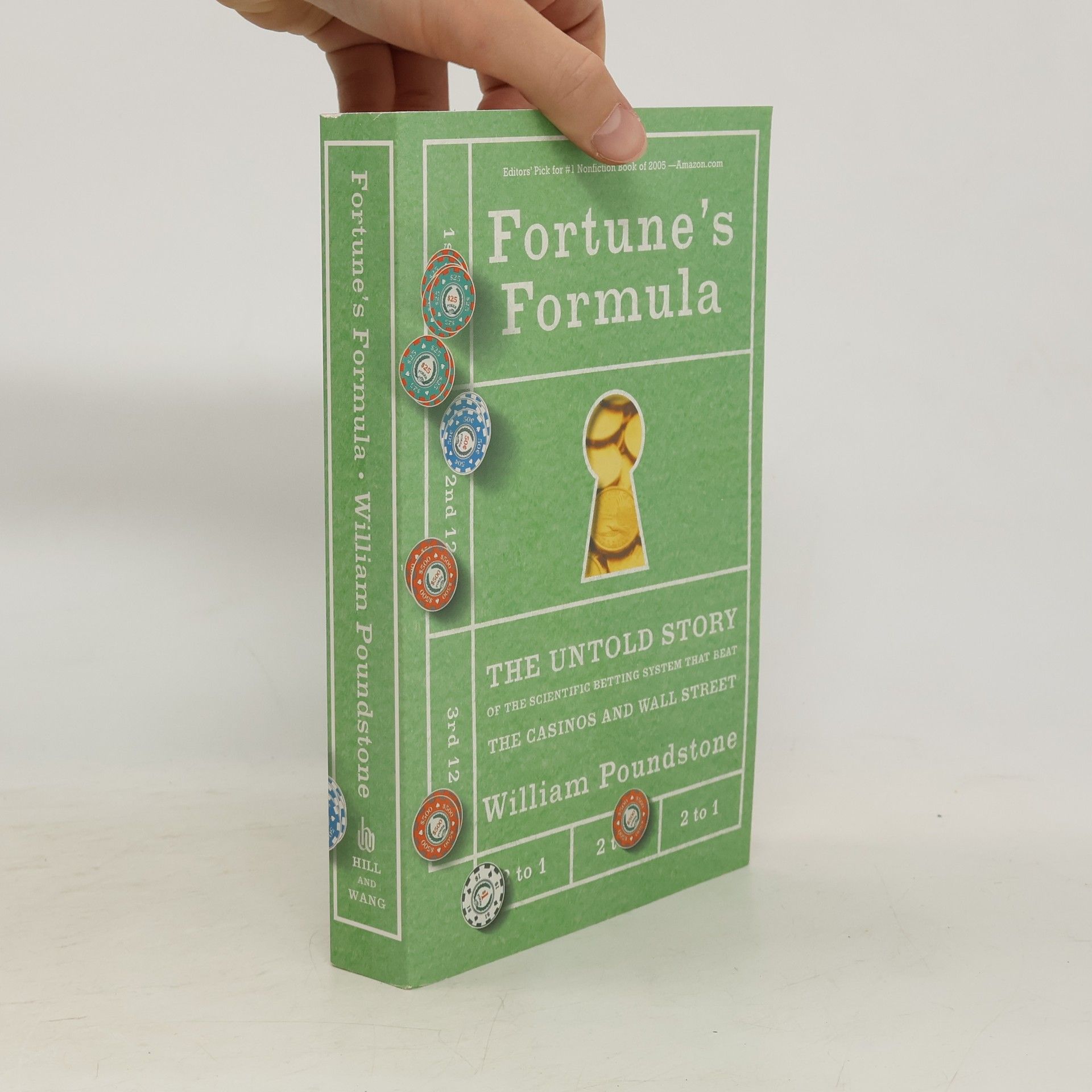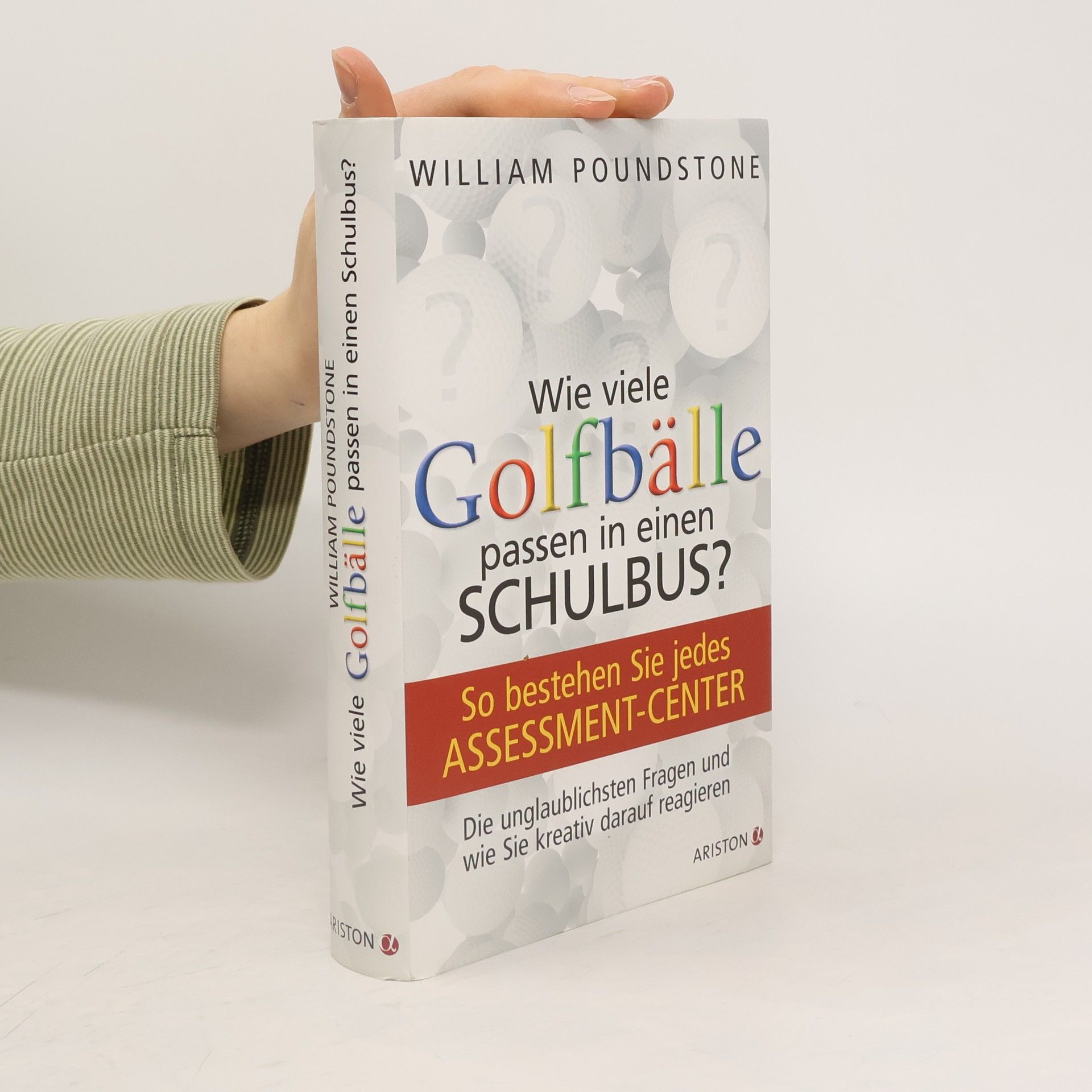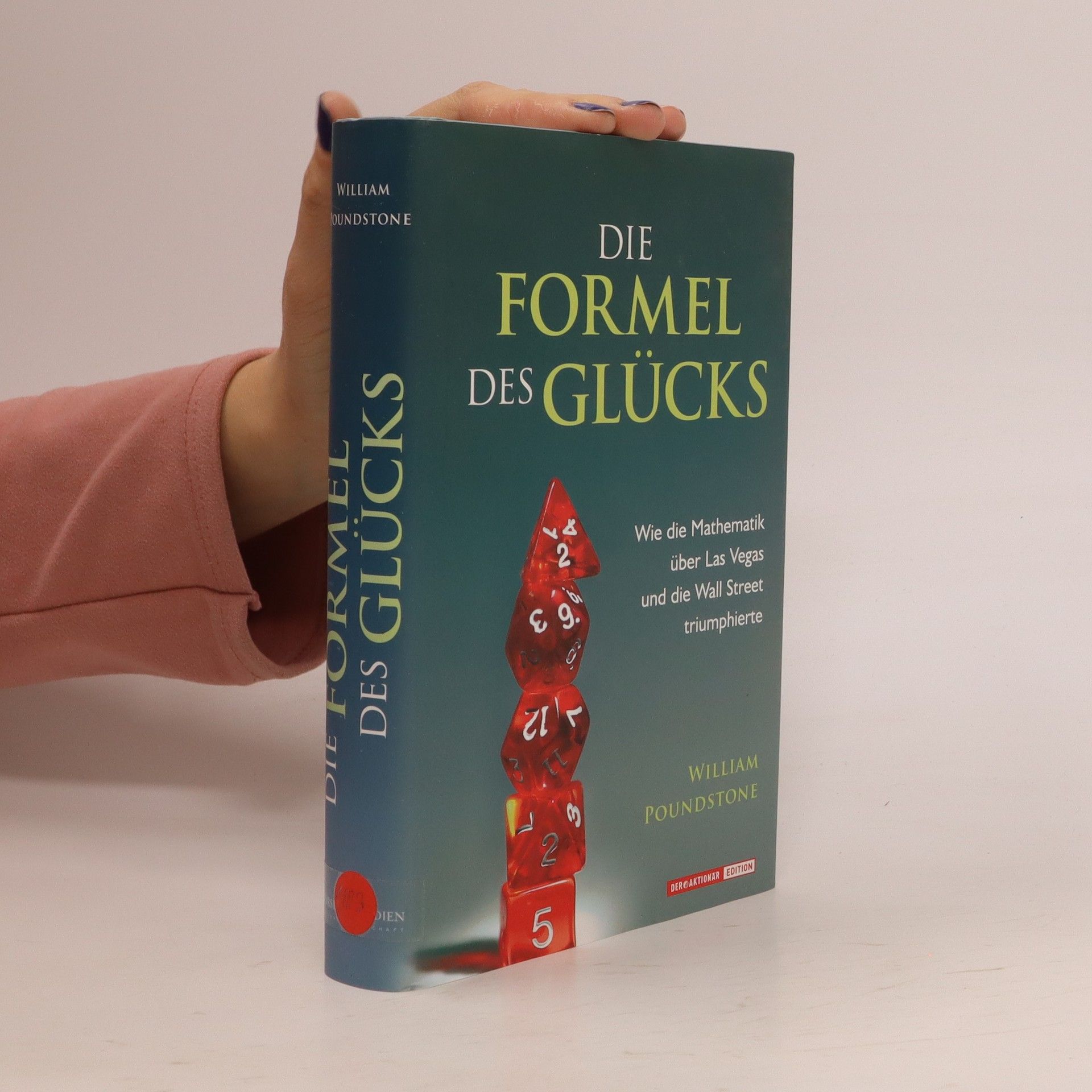Mithilfe der Informationstheorie - Basis für Computer und Internet - entdeckten zwei US-Wissenschaftler, C. Shannon und J. L. Kelly Jr. 1956 die Formel für Reichtum. Shannon und ein Mathematiker, E. O. Thorp, testeten diese Formel in Las Vegas am Spieltisch und schließlich an der Börse - mit durchschlagendem Erfolg! Ihre Trades toppten selbst Warren Buffetts Performance. Casino und Börse - zwei Welten mit Parallelen. „Die Formel des Glücks“ erzählt von den Kontroversen, die die Kelly-Formel aufwarf, selbst als sie satte Gewinne in Wettbüros, an Spieltischen und der Börse brachte. Laut Shannon kann ein kluger Anleger den Markt schlagen. „Die Formel des Glücks“ belegt, dass er recht hat. Lassen Sie sich überzeugen und versuchen Sie Ihr Glück!
William Poundstone Bücher
William Poundstone schafft Sachbücher, die sich mit dem fesselnden Zusammenspiel von wissenschaftlichen Entdeckungen und ihren gesellschaftlichen sowie finanziellen Folgen auseinandersetzen. Seine weithin übersetzten Werke erforschen die Komplexität menschlichen Verhaltens und Entscheidungsprozesse mit scharfem Intellekt und aufschlussreicher Analyse. Poundstone ist für seinen eindringlichen Stil bekannt, der komplexe Konzepte einem breiten Lesepublikum zugänglich macht. Seine Schriften regen zum Nachdenken an und bieten neue Perspektiven auf die Welt.






Paradoxien sind garstige, widerspenstige Kobolde, beheimatet in den Fundamenten des logischen Denkens, wo sie auf Abgründe und Unvereinbarkeiten verweisen und so manchen wackeren Philosophen in die Verzweiflung treiben? Woher wissen wir, was wir wissen? William Poundstone führt den Leser in Regionen, wo jede vermeintliche Gewißheit verzagt, und bringt ihn zum Staunen: über schwarze Löcher und Zeitreisen, über Geheimschriften und unknackbare Codes, über Platons Höhlengleichnis und Searles chinesisches Zimmer, über Willensfreiheit und Determinismus, über einen Computer von der Größe des Universums.
William Poundstone beleuchtet in seinem Buch die Herausforderungen von Assessment-Centern bei Top-Firmen wie Google und Apple. Er erklärt, welche Absichten hinter kniffligen Fragen stecken und bietet kreative Lösungsansätze. Mit Anekdoten aus Bewerbungsgesprächen zeigt er, wie man trotz Unwissenheit erfolgreich bestehen kann.
Bigger Secrets
- 244 Seiten
- 9 Lesestunden
A remarkable compilation of inside information, confirming the uncensored truth about some of America's top secrets, from the important to the amusing. Follows the success of Poundstone's Big Secrets.
Fortune's Formula
The Untold Story of the Scientific Betting System That Beat the Casinos and Wall Street
- 400 Seiten
- 14 Lesestunden
In 1956 two Bell Labs scientists discovered the scientific formula for getting rich. One was mathematician Claude Shannon, neurotic father of our digital age, whose genius is ranked with Einstein's. The other was John L. Kelly Jr., a Texas-born, gun-toting physicist. Together they applied the science of information theory—the basis of computers and the Internet—to the problem of making as much money as possible, as fast as possible.Shannon and MIT mathematician Edward O. Thorp took the "Kelly formula" to Las Vegas. It worked. They realized that there was even more money to be made in the stock market. Thorp used the Kelly system with his phenomenonally successful hedge fund, Princeton-Newport Partners. Shannon became a successful investor, too, topping even Warren Buffett's rate of return. Fortune's Formula traces how the Kelly formula sparked controversy even as it made fortunes at racetracks, casinos, and trading desks. It reveals the dark side of this alluring scheme, which is founded on exploiting an insider's edge.Shannon believed it was possible for a smart investor to beat the market—and Fortune's Formula will convince you that he was right.
This book explores what paradox has to tell us of the nature of thought and reality, from the prisoner's dilemma to the thesis that the universe is a computer and from Schrodinger's cat to Searle's Chinese room.
A fascinating biography of the dazzlingly brilliant Hungarian mathematician--considered by many to be the greatest genius of the 20th century--Prisoner's Dilemma tells the story of John Von Neumann, the inventor of the digital computer and key player in the invention of the atom bomb. Photographs.
How Do You Fight a Horse-Sized Duck?
- 320 Seiten
- 12 Lesestunden
How to tackle the toughest interview questions Facebook, Amazon, Apple, Netflix and Google have to offer - and other perplexing problems to puzzle any mind!
Head In the Cloud
- 352 Seiten
- 13 Lesestunden
The real-world value of knowledge in the mobile-device age. More people know who Khloe Kardashian is than who Rene Descartes was. Most can't find Delaware on a map, correctly spell the word occurrence, or name the largest ocean on the planet. But how important is it to fill our heads with facts? A few keystrokes can summon almost any information in seconds. Why should we bother learning facts at all? Bestselling author William Poundstone confronts that timely question in HEAD IN THE CLOUD. He shows that many areas of knowledge correlate with the quality of our lives--wealth, health, and happiness--and even with politics and behavior. Combining Big Data survey techniques with eye-opening anecdotes, Poundstone examines what Americans know (and don't know) on topics ranging from quantum physics to pop culture. HEAD IN THE CLOUD asks why we're okay with spelling errors on menus but not on resumes; why Fox News viewers don't know which party controls Congress; why people who know "trivia" make more money than those who don't; how individuals can navigate clickbait and media spin to stay informed about what really matters. Hilarious, humbling, and wildly entertaining, HEAD IN THE CLOUD is a must-read for anyone who doesn't know everything.
The uncensored truth about all sorts of stuff you are never supposed to know. Learn the answers to hundreds of questions such as . . . What's the best way to beat a lie detector test? What's really in Spam?, Coca-Cola, the secret recipe for Mrs. Field's Cookies? What's the meaning behind all those seemingly meaningless doodles of graffiti? What's the truth behind the rumor of Walt Disney being cryogebnically frozen and hidden in a secret vault benath Disneyland? . . . and many, many more.



